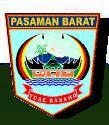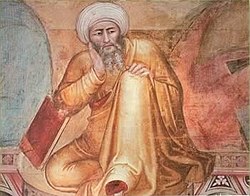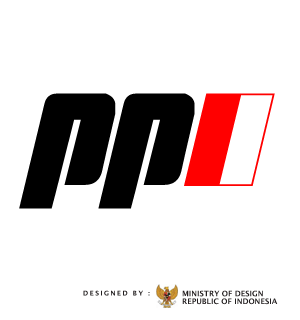
Al- Qur'an pegangan hidup yang harus dipelajari.

عرفت المدرسة القرآنية منذ الحياة الأولى للإسلام ، فقد كان رسول الله صلى الله عليه وسلم يتلقى الوحي عن ربه ، ويقوم بتلقينه لصحابته فرادى وجماعات . وكان هؤلاء الصحب الكرام يقبلون في حماسة وشغف على تلقي كتاب ربهم إعجابًا به ، وإيمانًا منهم بأن تلاوته ومدارسته والعمل به عبادة من أجلِّ العبادات ، وقربى من أقرب القربات ، ألم يخبرهم نبيهم الكريم بقوله :
 . وبقوله صلوات الله وسلامه عليه :
. وبقوله صلوات الله وسلامه عليه :  . ولقد امتاز هذا الكتاب المعجز فيما امتاز به بيسر تلقيه وتلاوته يقول تبارك وتعالى :
. ولقد امتاز هذا الكتاب المعجز فيما امتاز به بيسر تلقيه وتلاوته يقول تبارك وتعالى :  . ومع انتشار الإسلام وذيوعه انتشرت المدرسة القرآنية ، وعلا شأنها وبعد أن كانت في المساجد تملأ حلقاتها ، أصبحت غرفًا ملحقة بالمساجد تستقبل الناشئة من أطفال المسلمين ، ليكون القرآن الكريم أول ما يقرع آذانهم ، وتتفتح عليه قلوبهم من أنواع الدراسات المختلفة قبل أن ينتقلوا إلى مراحل العلوم بعد ذلك . وقد انتشرت تلك المدارس حيث ينتشر الإسلام . فأينما وجدت الجماعة الإسلامية وجدت المدرسة القرآنية ، لا فرق بين بلاد تنطق بالعربية ، وبلاد لا تنطق بها . يقول ابن حزم : " مات رسول الله صلى الله عليه وسلم والإسلام قد انتشر في جميع جزيرة العرب ، وفي هذه الجزيرة من القرى والمدن ما لا يعرف عدده إلا الله ، كلهم قد أسلموا وبنوا المساجد ، ليس فيها مدينة أو قرية ، ولا حلة للأعراب إلا قرئ فيها القرآن في الصلوات وعلمه الصبيان والرجال والنساء . . . ثم مات أبو بكر وولي عمر ففتحت بلاد الفرس ، وفتحت الشام والجزيرة ومصر ، ولم يبق من هذه البلاد مدينة إلا وقد بنيت فيها المساجد ، ونسخت المصاحف ، وقرأ الأئمة القرآن ، وتعلمه الصبيان في المكاتب شرقًا وغربًا"
. ومع انتشار الإسلام وذيوعه انتشرت المدرسة القرآنية ، وعلا شأنها وبعد أن كانت في المساجد تملأ حلقاتها ، أصبحت غرفًا ملحقة بالمساجد تستقبل الناشئة من أطفال المسلمين ، ليكون القرآن الكريم أول ما يقرع آذانهم ، وتتفتح عليه قلوبهم من أنواع الدراسات المختلفة قبل أن ينتقلوا إلى مراحل العلوم بعد ذلك . وقد انتشرت تلك المدارس حيث ينتشر الإسلام . فأينما وجدت الجماعة الإسلامية وجدت المدرسة القرآنية ، لا فرق بين بلاد تنطق بالعربية ، وبلاد لا تنطق بها . يقول ابن حزم : " مات رسول الله صلى الله عليه وسلم والإسلام قد انتشر في جميع جزيرة العرب ، وفي هذه الجزيرة من القرى والمدن ما لا يعرف عدده إلا الله ، كلهم قد أسلموا وبنوا المساجد ، ليس فيها مدينة أو قرية ، ولا حلة للأعراب إلا قرئ فيها القرآن في الصلوات وعلمه الصبيان والرجال والنساء . . . ثم مات أبو بكر وولي عمر ففتحت بلاد الفرس ، وفتحت الشام والجزيرة ومصر ، ولم يبق من هذه البلاد مدينة إلا وقد بنيت فيها المساجد ، ونسخت المصاحف ، وقرأ الأئمة القرآن ، وتعلمه الصبيان في المكاتب شرقًا وغربًا"  . وإذا كان بعض العلماء يعد عام (459هـ) حدًّا فاصلًا بين عهدين في تاريخ المؤسسات التعليمية الإسلامية ، ففي هذا العام أنشئت المدرسة النظامية في بغداد ، مؤذنة ببداية عهد تعليمي جديد ، انتقلت فيه أماكن التعليم من الكتاتيب والقصور والمساجد ، ودور الحكمة ، وحوانيت الورّاقين ومنازل العلماء ، إلى المدارس المنظمة ، فإن هذا لا يقلل من دور المسجد بوصفه أول مؤسسة انطلق منها شعاع العلم والتعليم في الإسلام على كافة البشر ، حيث كان يلتقي فيه الطلاب بالعلماء : يناقشون ، ويتحاورون فيما يعنّ لهم من مشكلات ومسائل فقهية ، أو علمية بحتة ، حتى قيل بحق : إن آلاف أعمدة المساجد التي كانت منتشرة في الإسلام كانت محاطة بآلاف من العلماء المسلمين ، وعشرات الآلاف من المتعلمين
. وإذا كان بعض العلماء يعد عام (459هـ) حدًّا فاصلًا بين عهدين في تاريخ المؤسسات التعليمية الإسلامية ، ففي هذا العام أنشئت المدرسة النظامية في بغداد ، مؤذنة ببداية عهد تعليمي جديد ، انتقلت فيه أماكن التعليم من الكتاتيب والقصور والمساجد ، ودور الحكمة ، وحوانيت الورّاقين ومنازل العلماء ، إلى المدارس المنظمة ، فإن هذا لا يقلل من دور المسجد بوصفه أول مؤسسة انطلق منها شعاع العلم والتعليم في الإسلام على كافة البشر ، حيث كان يلتقي فيه الطلاب بالعلماء : يناقشون ، ويتحاورون فيما يعنّ لهم من مشكلات ومسائل فقهية ، أو علمية بحتة ، حتى قيل بحق : إن آلاف أعمدة المساجد التي كانت منتشرة في الإسلام كانت محاطة بآلاف من العلماء المسلمين ، وعشرات الآلاف من المتعلمين  . ومنذ العهد الأول -عهد مدارس المساجد- انتشرت مدارس القرآن والقراءات في جميع الأقطار الإسلامية وصار التنافس العلمي الشريف دافعًا لطلاب تلك المدارس إلى التفوق والإبداع العلمي في مجال علم القراءات . وفيما يلي ذكر لأهم أولئك العلماء الأفذاذ مع تراجم مختصرة لهم ، تبين مدى ما قاموا به من جهد في خدمة الكتاب العزيز .
. ومنذ العهد الأول -عهد مدارس المساجد- انتشرت مدارس القرآن والقراءات في جميع الأقطار الإسلامية وصار التنافس العلمي الشريف دافعًا لطلاب تلك المدارس إلى التفوق والإبداع العلمي في مجال علم القراءات . وفيما يلي ذكر لأهم أولئك العلماء الأفذاذ مع تراجم مختصرة لهم ، تبين مدى ما قاموا به من جهد في خدمة الكتاب العزيز . 





















